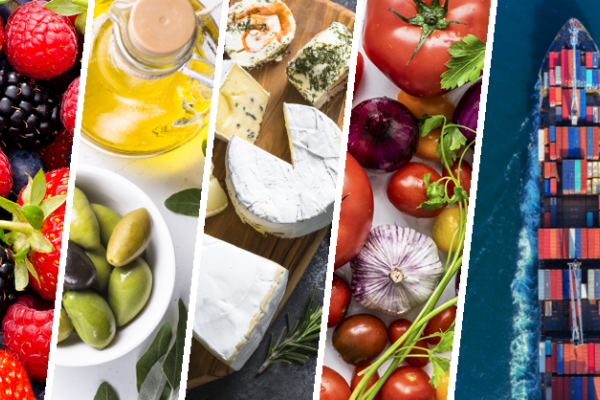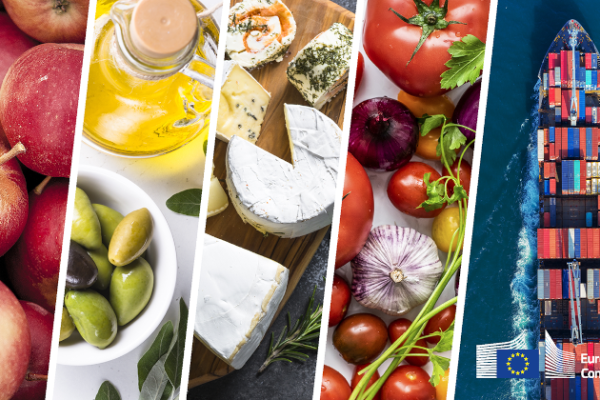Support available for young farmers
The CAP 2023-27 provides for several interventions specifically for young farmers. EU countries tailor their measures to national conditions in their CAP Strategic Plans.
Combination of several interventions
Strategies to benefit young farmers generally involve combining several interventions or actions including:
- the Complementary Income Support for Young Farmers (CISYF),
- installation of young farmers, new farmers and rural business start-ups.
Direct payments
EU countries must dedicate an amount corresponding to at least 3% of their direct payments budget to support young farmers. This support may be granted as income support, investment support or start-up aid for young farmers (only 50% of relevant investment support would be counted towards this target).
Complementary income support for young farmers (CISYF)
The CISYF is a voluntary scheme under direct payments providing enhanced income support to young farmers who are newly set up for the first time and who are entitled to basic income support. The support is granted in the form of an annual payment per eligible hectare or annual lump sum.
National policies
National factors can have an impact on generational renewal (for example access to land and succession legislations). EU countries are thus required to examine the interplay between national policies (including tax relief schemes, farmers’ pension schemes, loan schemes, regulatory measures related to land lease, purchase or inheritance) and CAP interventions and measures to ensure consistency between all of the actions.
Rural development actions for young farmers
In addition, rural development interventions that can be included in CAP Strategic Plans for the 2023-27 period provide additional opportunities to help young farmers get started:
- Installation of young farmers, new farmers and rural business start-ups: this is a voluntary type of intervention by EU countries under CAP 2023-27 rural development funds, which aims to provide immediate start-up support to farmers and businesses.
- Cooperation schemes: in the context of farm succession, this applies in particular for generational renewal at farm level.
Young farmers can benefit from investment support and create or join producer organisations to strengthen their market and economic situation.
CAP Strategic Plans for the 2023-27 period can include help to develop rural businesses and advice on how to best enter farming.
Young farmers in the EU can apply for CAP support to the managing authorities, which are listed in their country’s national CAP Strategic Plan. Most EU countries support generational renewal through CISYF under direct payments and via rural development funds call for application.

In order to make rural areas attractive to young people, one of the CAP 2023-27 specific objectives encourages EU countries to promote employment, growth, and local development in rural areas that will create better working and living conditions and thus prevent rural youth exodus.
More information
Commission and EIB initiative for young farmers
In April 2019, the European investment bank (EIB) and the European Commission announced nearly € 1 billion of financing for the agriculture and bioeconomy sectors across Europe.
The European Investment Bank (EIB) loan package has attracted interest from several intermediaries in different EU countries, and the financing targets have been met in a relatively short time, despite the economic downturn due to the COVID-19 pandemic. To date (spring 2023), 98% of the financing has been signed with intermediary banks in:
- France (€375 million for three operations),
- Italy (€350 million for four operations),
- Greece (€210 million for four operations) and
- Croatia (€20 million).
The minimum financing target for young farmers has been slightly exceeded, with 11% of the total lending. In addition, around 30% of the envelope was dedicated to operations for climate action.
CAP 2023-27: a new way of working
The common agricultural policy (CAP) 2023-27 entered into force on 1 January 2023. It introduces a simplified approach to enable EU agriculture to meet the ever-evolving economic, societal and environmental needs of a globalised world. The policy shifts the emphasis from compliance and rules towards results and performance. This is new way of working revolves around:
- 10 key objectives of the CAP 2023-27, including generational renewal, set the basis for the policy, reflecting high EU-level ambition for the CAP as a whole;
- CAP Strategic Plans enabling EU countries to develop an intervention strategy in line with the 10 key objectives of the CAP 2023-27 and their fields of intervention.
Each plan combines a wide range of targeted interventions addressing the specific needs of the EU country concerned. These interventions deliver tangible results in relation to EU-level CAP objectives, while contributing to the ambitions of the European Green Deal.
Online dashboard
The European Commission launched an online dashboard to present the targets set at national level by each EU country in its approved CAP Strategic Plan, as well targets at EU level. This dashboard includes generational renewal (R.36) as one of the 44 “result indicators” set by the CAP legislation and linked to the 10 specific objectives. According to targets, up to 380 000 young farmers will set-up with support from the CAP.
Source: Directorate-General for Agriculture and Rural Development
EU countries are not required to include all 44 targets in their national CAP Strategic Plans. The planning of targets depends on the needs and planned actions decided at national level.

- News article
The Commission launched an online dashboard presenting the targets set at national level by each approved CAP Strategic Plan, as well targets at EU level.
- 3 min read
Young farmer definition
The Regulation (EU) 2021/2115 on CAP Strategic Plans sets the minimum necessary common elements defining the criteria to qualify as “young farmer” at EU level. This definition includes the requirements for all relevant interventions under income support (also known as the “first pillar”) and rural development (also known as the “second pillar”). This ensures consistency when EU countries address the objective of generational renewal in their CAP Strategic Plans.
Firstly, a young farmer must be a “farmer” as per the definition stipulated in Article 3(1) to Regulation (EU) 2021/2115. EU countries must take into consideration the following mandatory elements when drawing up their definition of a young famer as stipulated in Article 4(6) to Regulation (EU) 2021/2115:
- a young farmer can be maximum 35-40 years old (EU countries are to set the exact upper age limit),
- a young farmer must be a 'head of the holding' (i.e. must have an effective control over the holding, and EU countries must detail the specifications),
- a young farmer must have appropriate training and/or skills (EU countries must detail the specifications).
Young people in farming
Farmers under the age of 40 only manage 12% of all farm holdings in the European Union (EU), of which female young farmers represent only 3%. Persuading more young people to begin farming is a significant challenge.
Source: Eurostat
Faced with an ageing farming population, the EU is stepping up its efforts to encourage young people into farming:
- Establishing commercially viable farms: the sustainability of agriculture and food production relies on young, motivated and well-trained people finding living in rural areas attractive, remaining in those rural areas and establishing commercially viable farms.
- Securing Europe's food supplies: supporting the next generation of European farmers not only enhances the competitive advantages of European agriculture, but it also helps secure Europe's food supplies for the years to come. Young farmers are likely to be open to innovation, change and new technologies.
Some key challenges facing young farmers today include:
- difficulty to access land,
- high land prices,
- low profitability and difficult access to credit,
- difficulty for young farmers with families to access essential utilities (water, sanitation, telecommunication, broadband) and social support services (health and long term care, educational services).
The creation and development of new viable economic activities in the agricultural sector by young farmers is thus essential for the competitiveness, and the long-term sustainability of the EU’s agricultural sector, and rural and remote areas.
Facilitating the digital transition in agriculture
The objectives of the Agricultural knowledge and Innovation systems (AKIS) are to support the digital transition in agriculture, to boost the initiation and development of innovative projects, to disseminate their results and use them as widely as possible.
With the changes in agriculture and rural areas and the multiplication of modern technologies, the AKIS accompany farmers along the digital transformation process and help them keep up with new technologies.


